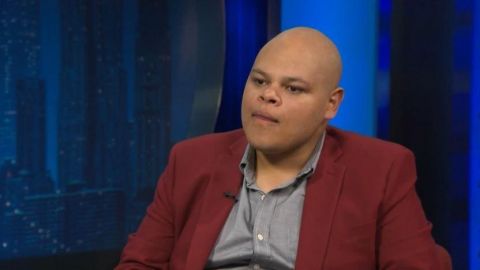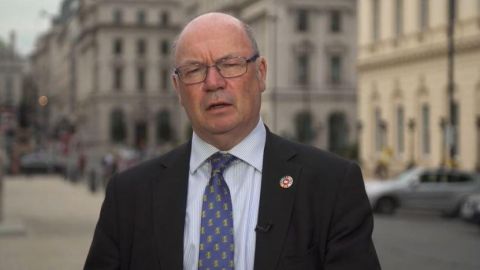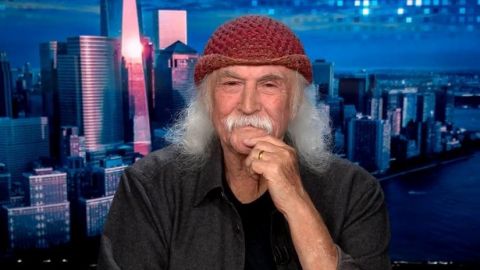Read Transcript EXPAND
CHRISTIANE AMANPOUR: Why did you decide to do this at this time?
DAVID CROSBY: Well, it’s kind of a peculiar circumstance. I’m at a point in my life when I should be, you know, fading out and sort of wandering off into the sunset quietly, and I haven’t been. I’ve been working myself pretty hard. And for some reason, a ton of music is coming to me now at this late stage of my life. And so, four records in four years, which is kind of — I didn’t plan it that way. It’s just what’s happened. And I’m extremely grateful for it.
AMANPOUR: You know, a lot of people have asked you, I know, how is it that you’re still alive given your drug history, given your eight stents, given your diabetes, given all that. I’m going to get into that in a moment. But I’m actually interested in how is it — can you attribute the quality of your voice to anything? Because so many of the old rockers who are still going don’t have the tunefulness anymore.
CROSBY: I got to say, it baffles me as much as it baffles you or everybody else. I shouldn’t be able to sing the way I’m singing. It doesn’t make any sense. And yes, most of my compatriots are deteriorating, you know, and how they can sing. I keep waiting for it to happen but it just hasn’t happened. I figured the only thing I can do, since I don’t understand it, is, you know, like I said, be very grateful for it and work really hard while I can.
AMANPOUR: And keep using it. But you said, “Music is the only thing I have to offer.”
CROSBY: I think, yes. In terms of the world and in terms of my life, you know, in large strokes, it’s the one place I can make a contribution. Christiane, it’s dark times out there. It’s hard in the United States right now for people to be up and the music lifts. So, I think it’s a good thing. I think it’s helping. I think that we need all the music we can get right now.
AMANPOUR: You’re right about that. But you said dark times and let’s just explore your dark times. I mean, by rights, you actually should not be alive. The amount of cocaine and heroin and all the other stuff that you did, the number of years where you were fully addicted and behaving, as you say, I mean, I can’t even repeat it, but, you know, in a pretty horrible way to a lot of people. Let me just read some of the headlines, you know, now that you are drug- free, “How Drugs Destroyed David Crosby.” That’s the “Rolling Stone,” November of ’85. Cocaine Casualty: How Cocaine Ruined the Life of Rocker, David Crosby.” “People Magazine,” 1983. “The Tragic Story of David Crosby’s Living Death. “Spin,” October 1985. I mean, clearly, you had been written off.
CROSBY: I think so, yes. Pretty much.
About This Episode EXPAND
Kori Schake and Alistair Burt join Christiane Amanpour to discuss President Trump’s foreign policy challenges. David Crosby joins the program to discuss his life and music. Jamil Jivani sits down with Michel Martin to talk about his first book, “Why Young Men: Rage, Race and the Crisis of Identity.”
LEARN MORE


